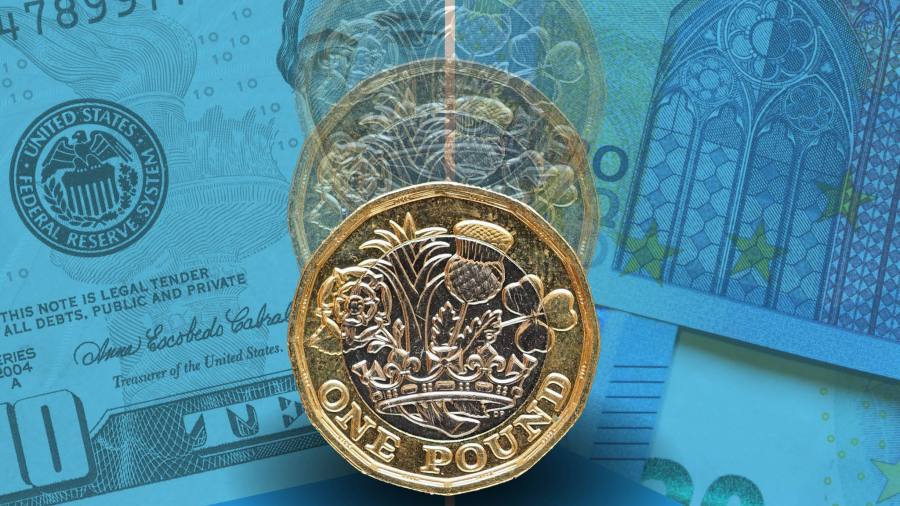[ad_1]
Sterling softened ahead of a Bank of England meeting on Thursday that analysts expect will provide further insights into policymakers’ thinking about the potential use of negative interest rates to support the UK’s coronavirus-scarred economy.
The pound fell 0.5 per cent against the dollar by late morning in London to purchase just under $1.36. Against the euro, sterling lost 0.1 per cent.
The UK currency rallied through the turn of the year as the country agreed a Brexit trade deal with the EU, while the rollout of Covid-19 vaccines fed optimism, pushing sterling near a three-year high. But that progress has stalled in recent days, as a third Covid-19 lockdown drags on. Business activity in January was at its weakest in eight months.
At its latest meeting, the BoE is expected to leave interest rates unchanged and resist extra monetary stimulus. It will also publish findings of a survey of commercial banks about negative rates, which the European Central Bank has used since June 2014 to try and stimulate borrowing and consumption.
Analysts do not expect the BoE to recommend lowering its policy rate below zero in coming months, although some expect its monetary policy committee to say they will continue exploring how useful this could be.
“The negative rates survey will likely conclude that such policy is feasible over time, leaving the negative rate discussion open for future MPC meetings,†Barclays analysts Fabrice Montagne and Abbas Khan wrote in a research note.
The yield on 10-year UK government bonds was broadly flat on Thursday morning at 0.37 per cent.
The central bank will also update its projections for the UK economy, with some analysts expecting the tone to be mildly positive. “The relatively swift start to the UK vaccination programme should have bolstered the MPC’s confidence in the growth outlook for coming quarters,†Daiwa Capital Markets economist Chris Scicluna said.
In equities, stock markets were drifting late on Thursday morning. The UK’s FTSE 100, which is stacked with companies that earn dollar revenues, rose as much as 0.7 per cent, boosted by the weakness of sterling. It then traded up just 0.2 per cent after large constituent Unilever warned trading this year would remain volatile and unpredictable and oil major Royal Dutch Shell reported its lowest annual profit since 2005.
The UK benchmark has still risen by around 17 per cent since the start of November as investors bet that the “old economy†businesses that dominate the index, such as oil producers and banks, will benefit from a vaccine-led global economic recovery.
“The UK index definitely ticks the boxes of benefiting from the reopening trade while it is also one of the few global markets where valuations are not too high,†said Supriya Menon, senior multi-asset strategist at Pictet Asset Management.
Following a blistering rally since March, led by tech stocks, the blue-chip S&P 500 index in the US is now valued at 22 times forward earnings, compared with 14 times for the FTSE.
In European stock markets the regional Stoxx 600 benchmark was 0.2 per cent higher. Germany’s Xetra Dax rose 0.4 per cent after Deutsche Bank, the long-struggling German lender, reported its first annual profit since 2014.
Futures markets signalled the S&P would add 0.2 per cent in opening trading in New York.
[ad_2]
Source link





